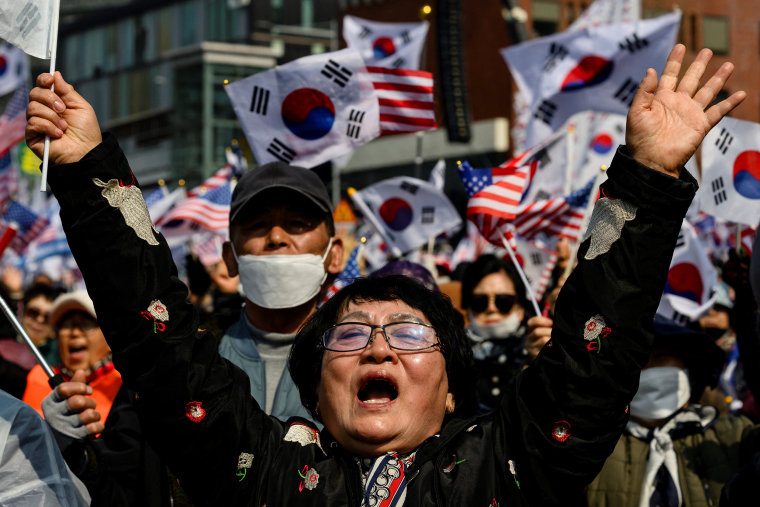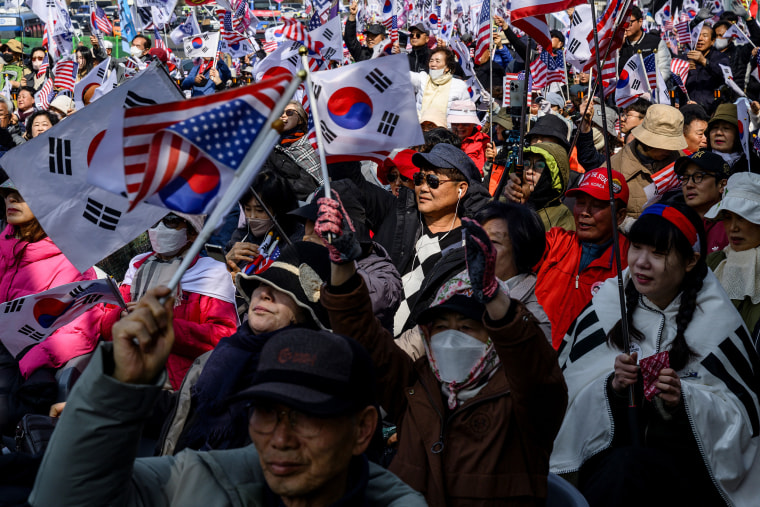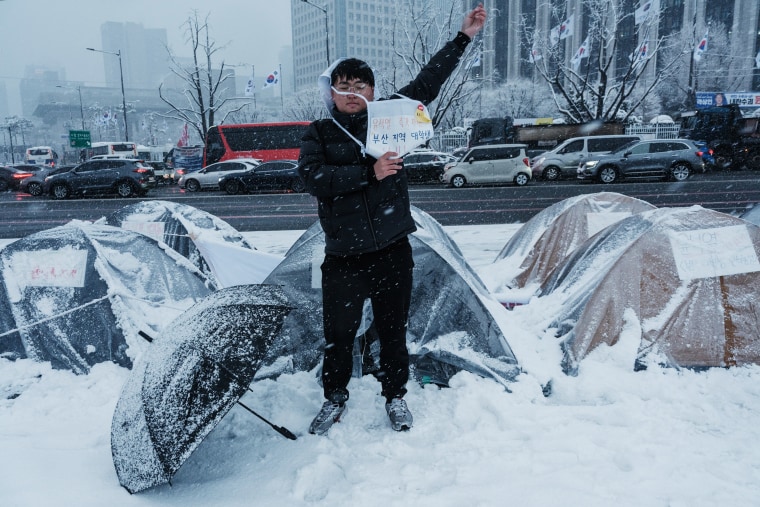SEOUL, South Korea — A South Korean court upheld the impeachment of President Yoon Suk Yeol on Friday, officially throwing him out of office over his botched imposition of martial law and setting the stage for a new presidential election.
Yoon’s brief martial law declaration and subsequent impeachment trial have deeply divided South Korea, a key U.S. ally and one of the most vibrant democracies in Asia. Rallies for and against the conservative leader’s removal from office have been held regularly, and officials had barricaded the courthouse ahead of the ruling in anticipation of possible violence.
The political turmoil has also sidelined South Korea as it grapples with steep U.S. tariffs imposed by President Donald Trump, as well as growing military cooperation between rival North Korea and Russia.
The eight judges on the Constitutional Court ruled unanimously against Yoon, 64, finding him guilty on all counts. The decision, which was broadcast live to cheering and despairing crowds and cannot be appealed, means an election for Yoon’s successor must be held within 60 days.

In a statement after the ruling, Yoon said it had been “a great honor” to serve South Korea.
“I am deeply grateful to all of you who supported and encouraged me, despite my many shortcomings,” he said. “I am truly sorry and heartbroken that I was unable to meet your expectations.”
While calling it “deeply regrettable,” Yoon’s People Power Party said it accepted the court’s decision “with gravity and humility.”
“We firmly believe that respecting this decision is the way to uphold democracy and the rule of law,” said lawmaker Kwon Young-se, the party’s interim leader, who added that “under no circumstances should there be violence or extreme actions.”
Yoon, who was not in court for the ruling but at his presidential residence in Seoul, the capital, will now move to his private home and continue with a separate criminal trial on charges of insurrection, one of the few offenses for which South Korean presidents do not have immunity.
On the streets of Seoul, the feeling among many people NBC News interviewed was relief.
“We’ve waited so long for this. For over 110 days, many citizens couldn’t sleep, tossing and turning each night,” said Yong Hye-in, 35, a civil society activist and leader of the Basic Income Party. “I think now, finally, they’ll be able to get some rest.”
The political crisis began Dec. 3 when Yoon issued a surprise martial law order, citing threats from “anti-state forces” and accusing the opposition-controlled parliament of paralyzing the government. The late-night order included media censorship and a ban on all political activities, and it was quickly followed by the arrival of hundreds of soldiers and police officers at parliament.
Lawmakers who pushed past security cordons to enter the building voted to reject Yoon’s order, which he rescinded about six hours after it was issued. Yoon was impeached by lawmakers on Dec. 14, and arguments in his two-month impeachment trial ended in late February.
The Constitutional Court said Friday that Yoon had violated the law by sending troops to the National Assembly to stop lawmakers from blocking his order. It also said his complaints, including unsubstantiated claims of election fraud, did not constitute a national crisis that would have justified martial law.
Issues such as government paralysis and potential election fraud “should be resolved through appropriate channels, not by deploying military forces,” the judges said.

Yoon’s martial law order, South Korea’s first in more than 40 years, had deeply shaken the country of 50 million people, which spent decades under military-authoritarian rule.
The ruling upholding his impeachment “represents an adherence to the rule of law,” said Jean H. Lee, an adjunct fellow and Northeast Asia expert at the East-West Center research organization in Honolulu.
“This really was a watershed moment for South Korea and for their democracy,” she said in a phone interview. “Because it became very clear as the judge was reading out the decision that they were not going to let partisan politics that have overshadowed this whole ordeal for four months taint or influence their close reading of the law.”
While Yoon is not the first South Korean president to be impeached, he became the first sitting president to be arrested when he was detained on the insurrection charges on Jan. 15. He spent almost two months in detention before he was freed last month by a Seoul district court, which cited procedural issues.
Yoon’s two trials, as well as charges and impeachment proceedings brought against multiple other officials, have deepened polarization between South Korean liberals and conservatives. Yoon’s conservative supporters have embraced his election fraud rhetoric and said he is being treated unfairly, adopting Trump-inspired slogans such as “Stop the Steal,” while some liberal politicians have called for the removal of any judges who rule against impeachment.
“There has been a palpable sense of national fatigue from seemingly endless political posturing, media speculation, and public demonstrations during a longer-than-expected legal process,” said Leif-Eric Easley, a professor of international studies at Ewha Womans University in Seoul.

Yoon’s reinstatement had been considered more likely after the Constitutional Court overturned the impeachment of Prime Minister Han Duck-soo last week on procedural grounds. Han, who became acting president after Yoon was impeached only to be impeached himself after less than two weeks, immediately resumed the role of acting president.
Han said after the ruling Friday that he would “maintain a firm security posture” and “do everything necessary to ensure that there are no disruptions in dealing with the pressing issues we face, such as the trade war.”
Janis Mackey Frayer reported from Seoul, Stella Kim from Los Angeles and Jennifer Jett from Hong Kong.
